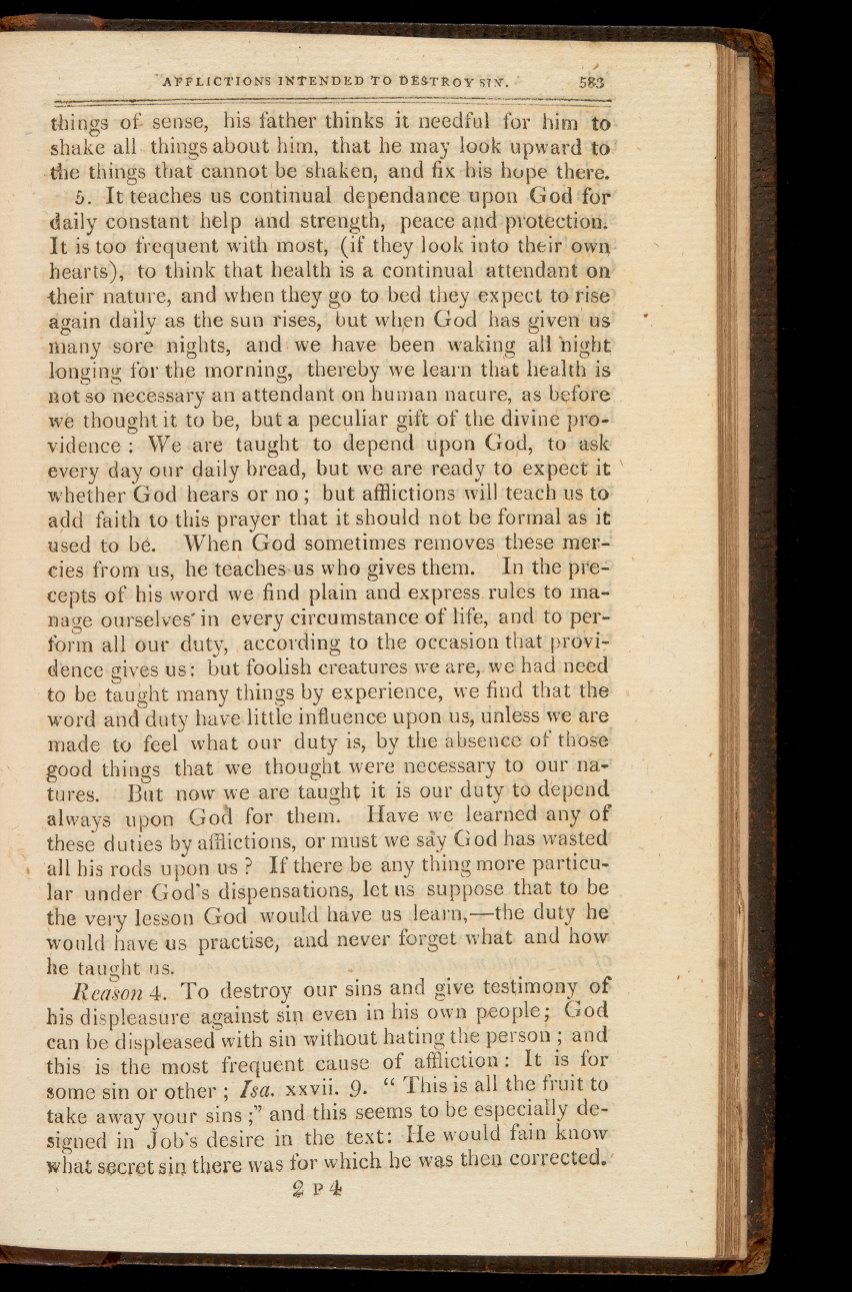

A]NPLICTIONS
INTENDED
TO
DE3TROY
Si\.
583
things
of
sense, his
father
thinks it needful
for him
to
shake
all things
about
him,
that
be may look
upward to
the
things
that cannot
be
shaken,
and
fix
his
hope there.
5.
It
teaches
us
continual dependance upon God for
daily
constant
help and strength, peace and-piotection.
It
is
too
frequent
with most,
(if
they look into their
own
hearts),
to
think
that
health
is
a
continual attendant
on
their nature,
and
when
they
go to bed
they
expect
to
rise
again daily
as
the
sun
rises,
but
when
God
has given
us
many sore nights,
andl
we
have been waking all
night
longing for
the
morning, thereby
we
learn
that
health
is
not
so
necessary
an
attendant
on
human nature,
as
before
we
thought it
to
be,
but a
peculiar
gift
of
the
divine
pro-
vidence We are
taught
to
depend
Upon
God,
to ask
every
day
our
daily
bread,
but
we
are
ready to
expect
it
whether
God
hears
or
no
;
but
afflictions
will
teach
us
to
add faith
to this
prayer that
it should
not
be
formal
as
it
used to
be.
When God
sometimes removes these
mer-
cies from
us,
he
teaches
-us who gives
them.
In
the
pie=
cepts
of
his
word
we
find
plain and
express
rules
to
ma-
nage ourselves' in every
circumstance
of
life,
and
to
per-
form all
our
duty,
according
to
the occasion
that
provi-
dence
gives
us:
but
foolish
creatures
we
are, we had need
to
be
taught
many things
by
experience,
we find
that
the
word and duty have
little
influence upon
us, Unless we
are
made
to feel
what
our
duty
is,
by
the
absence
of
those
good things
that
we
thought
were
necessary
to
our
na-
tures.
But
now we
are taught it
is
our duty
to
depend
always
upon
Goc
for them.
Have
we
learned
any
of
these
duties
by
afflictions,
or must
we
sáy
God
has wasted
all
his
rods
upon
us
?
If
there
be any
thing more
particu-
lar
under
God's
dispensations,
let
us
suppose
that
to be
the
very lesson
God
would have
us
.learn,
the
duty he
would have us practise,
and never forget what and hew
he
taught
us.
Reason
4..
To
destroy our
sins
and
give
testimony
of
his
displeasure
against
sin
even
in
his
own
people;
God
can be
displeased
with sin
without hating the person
;
and
this
is
the most
frequent cause
of
affliction
:
It
is
for
some sin
or
other
;
Isa.
xxvii. 9.
"
This
is
all
the
fruit to
take
away
your
sins
;"
and
this seems to be especially
de-
signed
in
Job's
desire
in
the
text:
He
would fain
know
what secret
sir}
there
was
for
which
he was
then
corrected.'

















